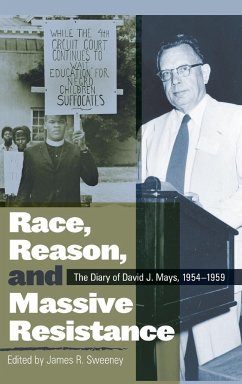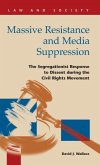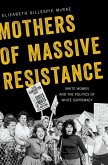These private writings by a prominent white southern lawyer offer insight into his state's embrace of massive white resistance following the 1954 Brown v. Board of Education ruling. David J. Mays of Richmond, Virginia, was a highly regarded attorney, a Pulitzer Prize-winning biographer, and a member of his city's political and social elite. He was also a diarist for most of his adult life. This volume comprises diary excerpts from the years 1954 to 1959. For much of this time Mays was counsel to the commission, chaired by state senator Garland Gray, that was charged with formulating Virginia's response to federal mandates concerning the integration of public schools. Later, Mays was involved in litigation triggered by that response. Mays chronicled the state's bitter and divisive shift away from the Gray Commission's proposal that school integration questions be settled at the local level. Instead, Virginia's arch-segregationists, led by U.S. senator Harry F. Byrd, championed a monolithic defiance of integration at the highest state and federal levels. Many leading Virginians of the time appear in Mays's diary, along with details of their roles in the battle against desegregation as it was fought in the media, courts, polls, and government back rooms. Mays's own racial attitudes were hardly progressive; yet his temperament and legal training put a relatively moderate public face on them. As James R. Sweeney notes, Mays's differences with extremists were about means more than ends--about "not the morality of Jim Crow but the best tactics for defending it."
Hinweis: Dieser Artikel kann nur an eine deutsche Lieferadresse ausgeliefert werden.
Hinweis: Dieser Artikel kann nur an eine deutsche Lieferadresse ausgeliefert werden.








